Thousands of Environment Agency staff who play a vital role in protecting communities across England will walk out today (Wednesday) as they strike over pay for the first time*, says UNISON.
River inspectors, flood forecasting officers, coastal risk management officers, sewage plant attendants and staff at the Thames Barrier are among those escalating their industrial action after refusing to do voluntary overtime in the run up to and during the festive period**.
Under-pressure staff say they’ve voted to strike over pay because over the years the government’s failure to fund the Environment Agency properly has led to squeezed budgets and wage rises that bear no relation to the cost of living or the going rate for some skilled jobs.
As a result, there are now severe staffing shortages across the whole of the Environment Agency, says UNISON. This has increased pressure on employees still in post and threatened the Agency’s ability to cope with disasters, the union adds.
To make matters worse, says UNISON, ministers have completely ignored the growing problems across the organisation caused by poor pay.
Only last week, cabinet ministers met several unions representing public service workers in a range of sectors facing industrial disputes. But there were no talks between environment secretary Therese Coffey and unions to discuss the ongoing difficulties and the growing dispute at the Agency.
The experienced workforce performs a wide range of essential roles like managing threats in flood-prone areas, maintaining sea defences, monitoring and tackling pollution spills in rivers and on land, and even ensuring radioactive material for life-changing medical treatment is handled safely.
Pressure on these services is magnified at the moment as the extreme winter weather affects millions of people across the country, with rising river levels after prolonged bouts of rain.
There are currently more than 80 severe flood warnings in place in England and more than 110 flood alerts, with Agency staff advising on evacuations, constructing barricades, and pumping water from homes and land.
Despite employees’ vital work, salaries have fallen by more than 20% compared to inflation since 2010, which means staff are effectively working one day in every five for free, says UNISON.
Environment Agency employees were only given a 2% pay rise (plus £345) for this financial year, but the previous year the majority of staff had a pay freeze and received nothing at all.
Improved pay is a must, says UNISON, and the government has to allow the Agency to negotiate directly with unions and staff to start tackling the recruitment and retention problems caused by long-term pay erosion.
**Last month, thousands of workers belonging to UNISON started working to rule and sticking to their contracted hours. Staff also refused to volunteer to be ‘on call’ to deal with emergency incidents for several days.
Today this will be scaled up significantly with a full strike from 8am to 5pm. However, UNISON has been careful to agree an emergency cover plan with senior managers at the Agency ensuring that officers will step in wherever there’s a threat to life or property.
UNISON head of environment Donna Rowe-Merriman said: “Communities up and down the country are at huge risk without the services Environment Agency employees provide. Staff are simply fed up with being taken for granted. This neglect cannot continue.
“Years without any wage increase or pitiful pay rises well below the cost of living, have taken a huge toll. Experienced workers are quitting in large numbers for better wages elsewhere and roles can’t be filled.
“The employer is sympathetic to the need for improved wages. But managers are powerless to act unless the government improves funding and allows meaningful negotiations to take place.
“The environment secretary was missing in action last week while other ministers were talking to unions about disputes and pay.
“Climate change is making extreme weather all the more common, so sitting back and allowing the situation to deteriorate, without the staff to tackle the growing problems isn’t an option.
“No one wants to strike, but Agency staff feel they’ve left no other option. The government must get involved and find the funding so there can be positive moves on pay.”
Notes to editors:
– *This is the first Environment Agency strike over pay but not the first strike involving staff there. They previously took action over the threat to their pensions just over a decade ago. Around 2,800 staff were balloted at the Agency.
– UNISON general secretary Christina McAnea will be visiting the Thames Barrier at 10am today to meet striking Environment Agency staff. TUC general secretary Paul Nowak will visit the Newcastle picket line (Tyneside House, Elswick, Newcastle-upon-Tyne NE4 7AR) from 8.45am to 9.05am. A list of other picket lines can be found here.
– Comments from Environment Agency workers:
“I’ve worked in flood risk management for more than 30 years, providing a vital service for the communities we serve. But over the past decade our workload has significantly increased as we adapt to climate change, yet our pay has diminished. We’re asked to be available to cover all types of incidents, but standby payments are poor and don’t compensate for the impact on family life. Recruiting people into technical roles is increasingly difficult with wages falling further behind the private sector and staff understandably leaving for better-paid roles. Our ability to deliver the service local communities need and expect is being hugely compromised.”
“The decade of pay cuts has an impact on every aspect of day-to-day life. It affects both the home and area where you can afford to live. It affects the ability to save for life’s unexpected emergencies and to borrow if you need to. We’ve voted to take strike action – but colleagues are also voting with their feet and leaving for better-paid jobs. The Agency now has to pay higher rates for contractors to cover the work of vacant posts, while highly skilled, experienced and loyal staff continue to leave.”
“We’ve carried vacancies of between 50 and 60% in field teams for nearly three years because the pay isn’t good. As a direct result, many more people’s homes are at a greater risk of flooding.”
“Twelve years of austerity has really taken the shine off doing a job that I have always loved. The constant erosion of living standards has eroded morale, just as the UK enters a critical period for climate change, biodiversity loss and pollution of our land and oceans. For the sake of a decent pay settlement, we could lose so much more.”
“I’m striking because I’m fed up with relentless decreases to my real-terms income. I had a good promotion a few years back, but I still earn less, in real terms, than I did ten years ago. The Agency can no longer recruit the people it needs to protect the environment. Existing staff care deeply about water quality, pollution and flooding but as our chief executive says, ‘you get the environment you pay for’.”
“I’m fed up with relying on second-hand school uniform and shoes for my children because I don’t have enough money. The house is always cold because we can’t afford to have the heating on. Imagine what it’s like to tell your children they can’t go to the pantomime this year and seeing the sadness in their faces.”
“For years, when inflation was low, we could just about manage with salaries staying still because prices weren’t on the increase. But with inflation soaring, I just don’t know what to do. I’m having to decide on a weekly basis whether to heat our home properly or eat healthily. It’s not possible to do both.”
– UNISON is the UK’s largest union with more than 1.3 million members providing public services in education, local government, the NHS, police service and energy. They are employed in the public, voluntary and private sectors.
Press contacts:
Liz Chinchen M: 07778 158175 E: press@unison.co.uk
Anthony Barnes M: 07834 864794 E: a.barnes@unison.co.uk
The article Ministers must invest in Environment Agency staff or communities will be at long-term risk first appeared on the UNISON National site.
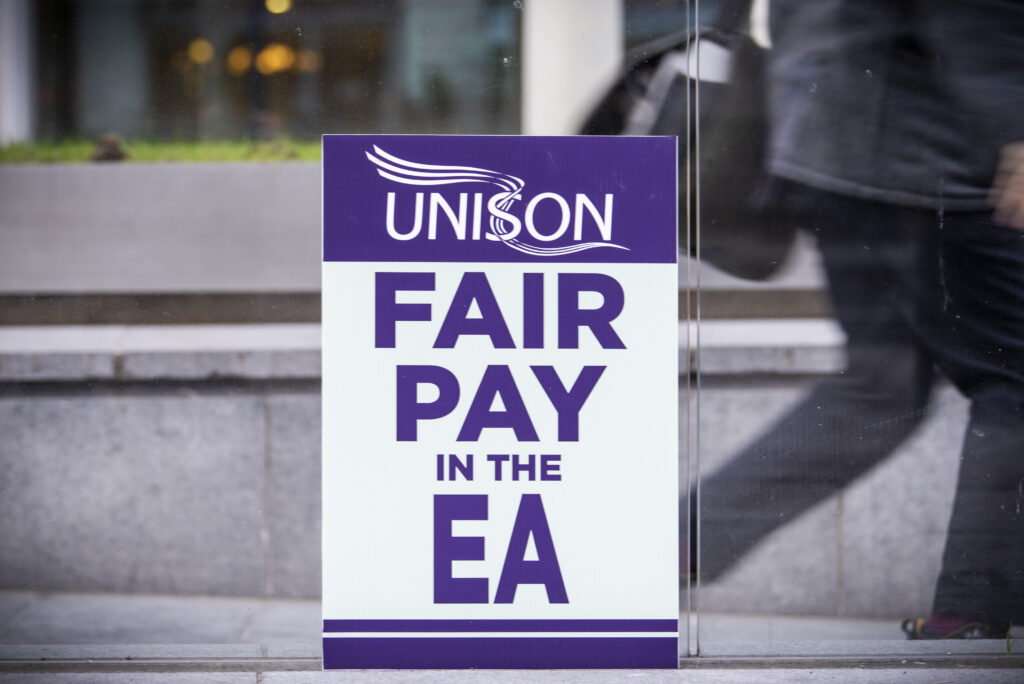

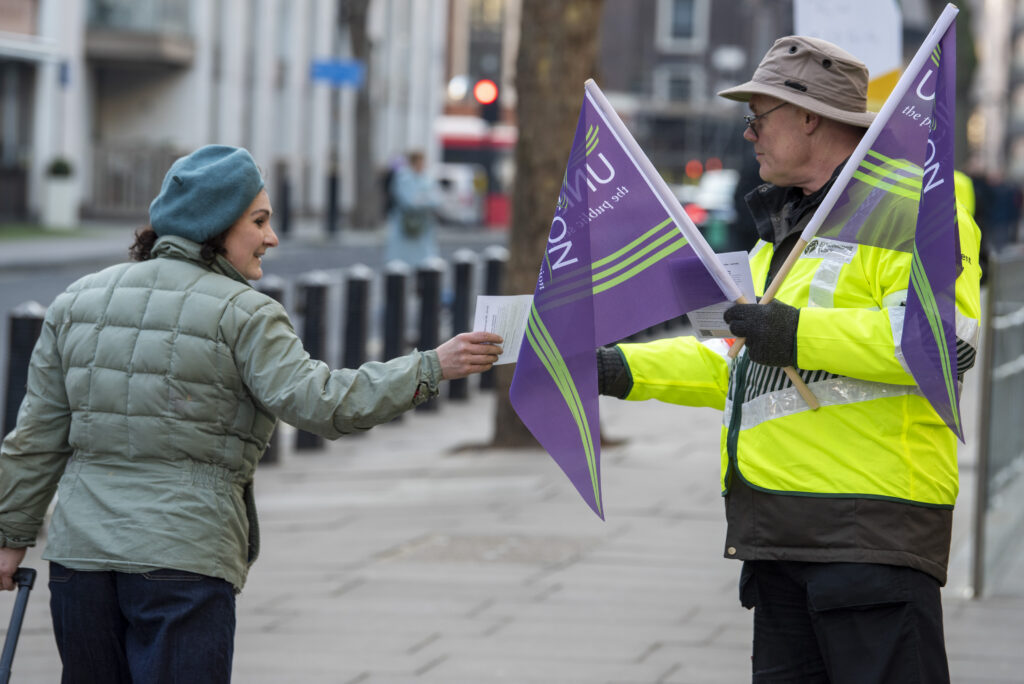
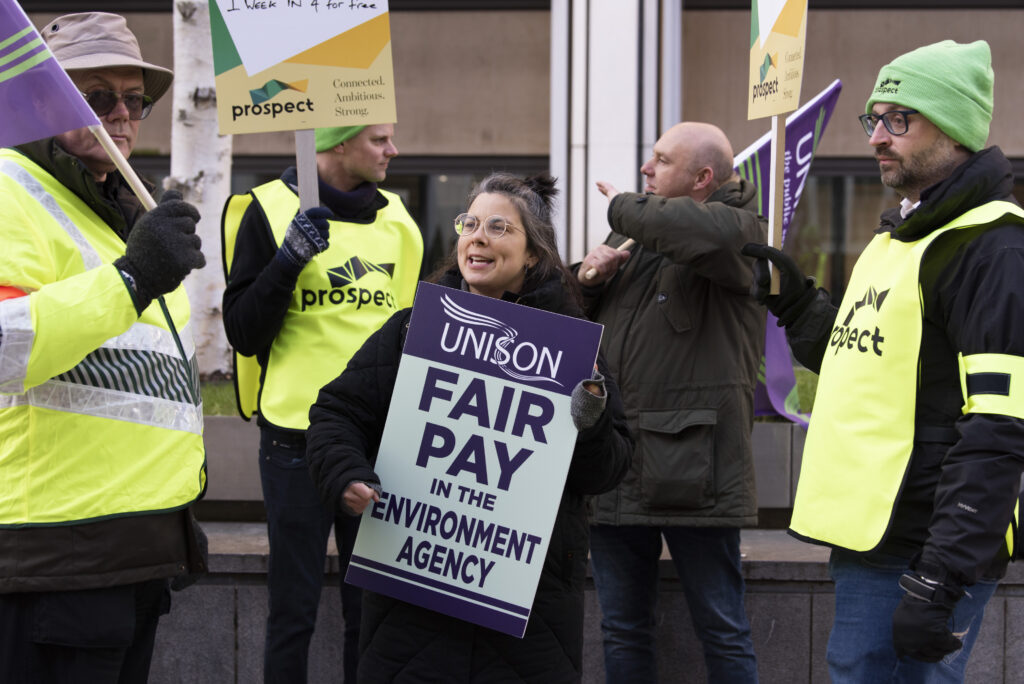
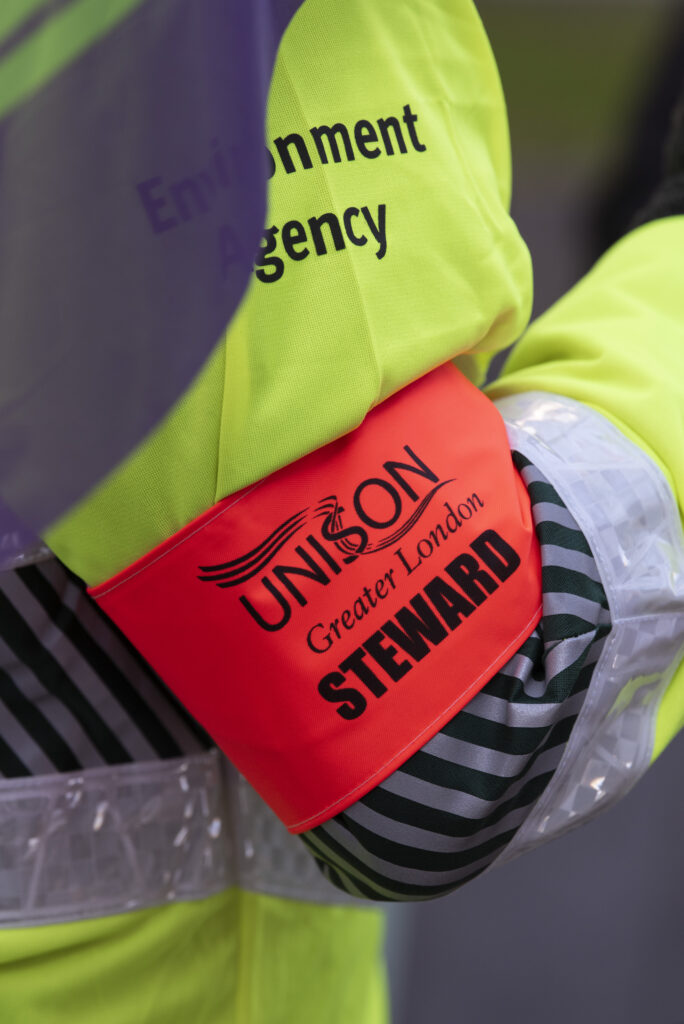
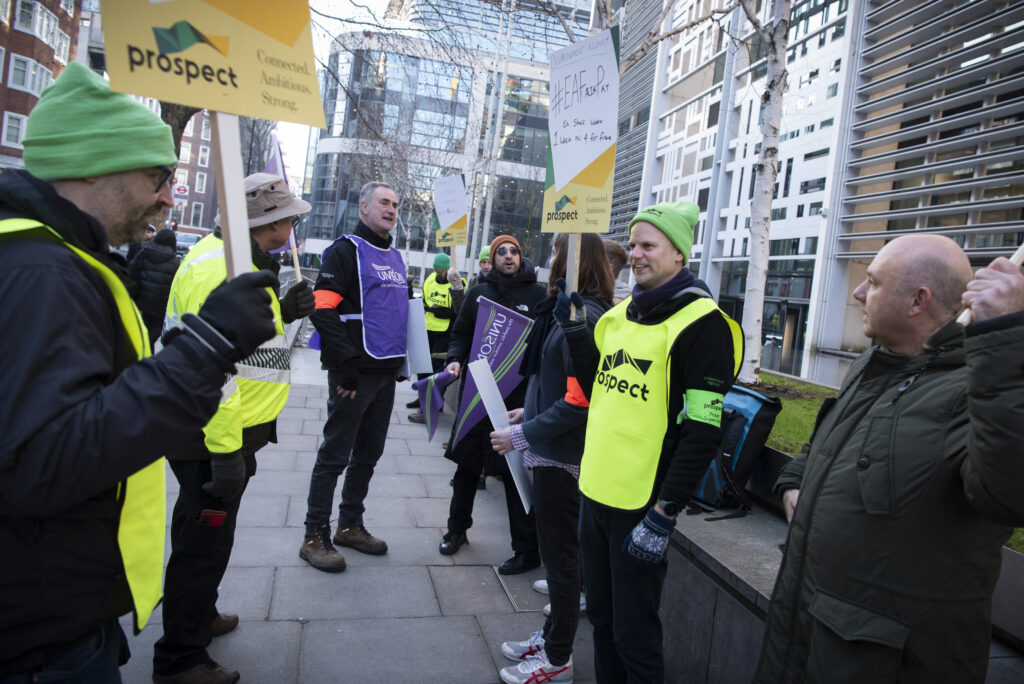
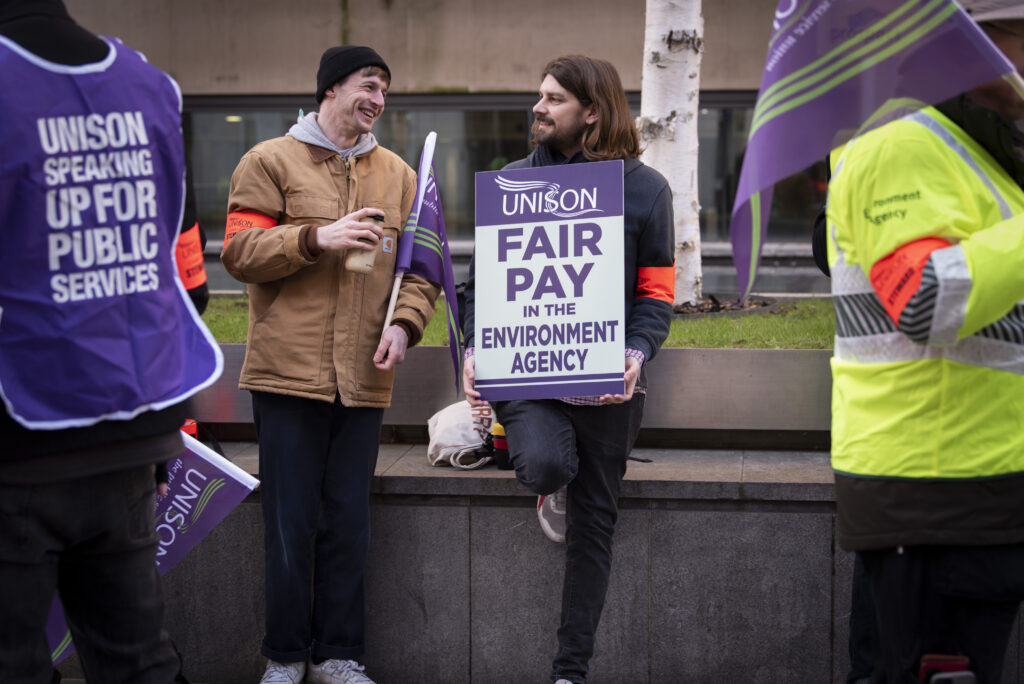
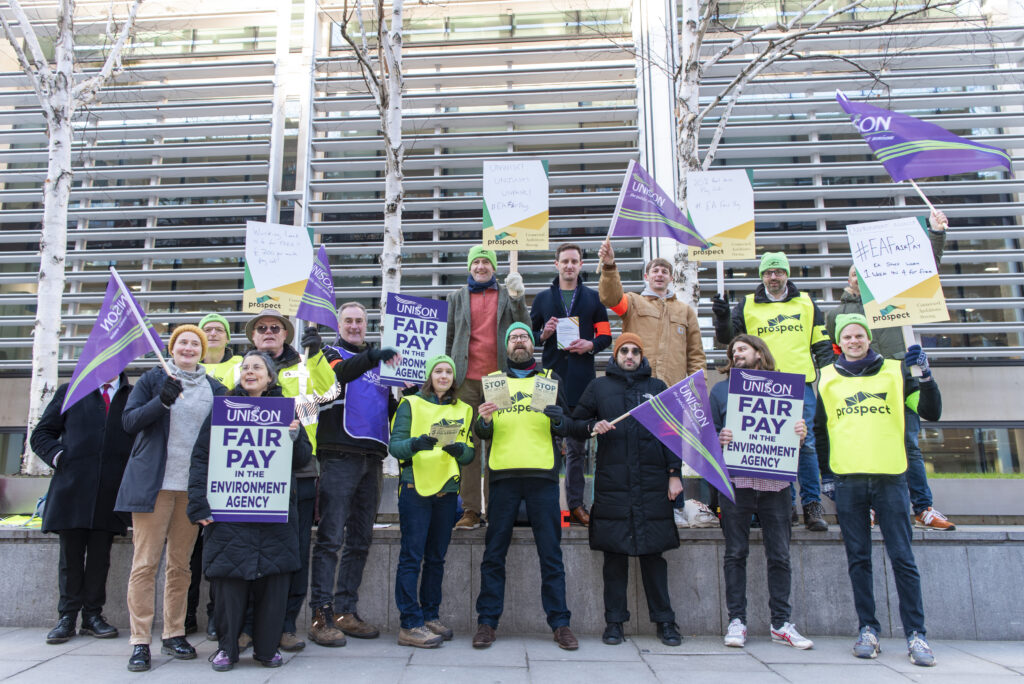

 UNISON
UNISON Manley House, Exeter
Manley House, Exeter





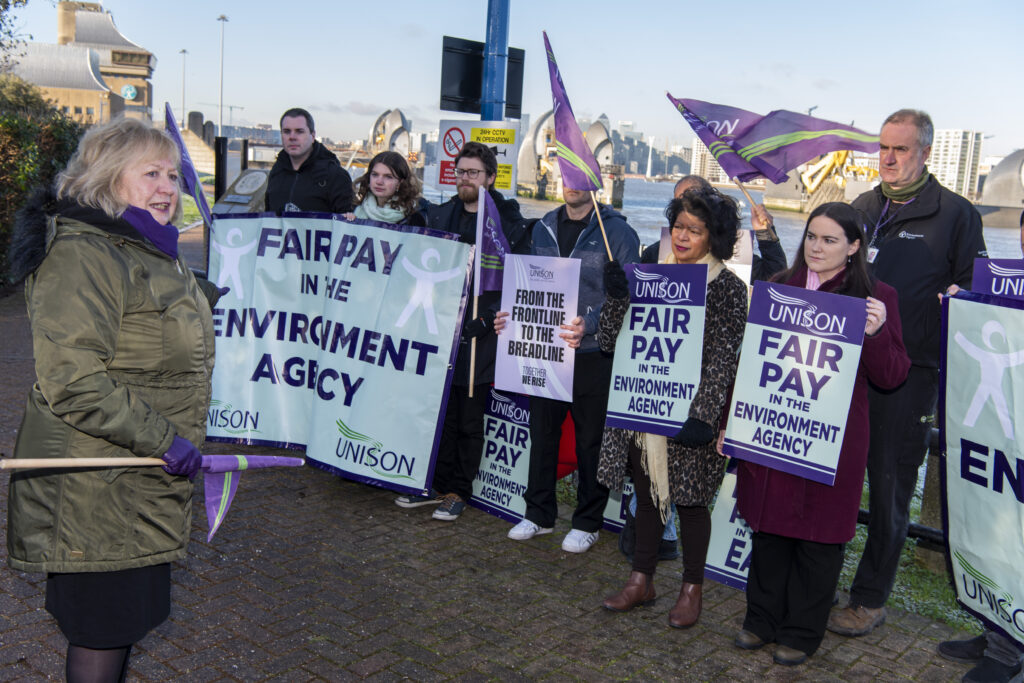
 Great turnout on a cold, crisp morning at the environment agency picket in Sheffield
Great turnout on a cold, crisp morning at the environment agency picket in Sheffield
